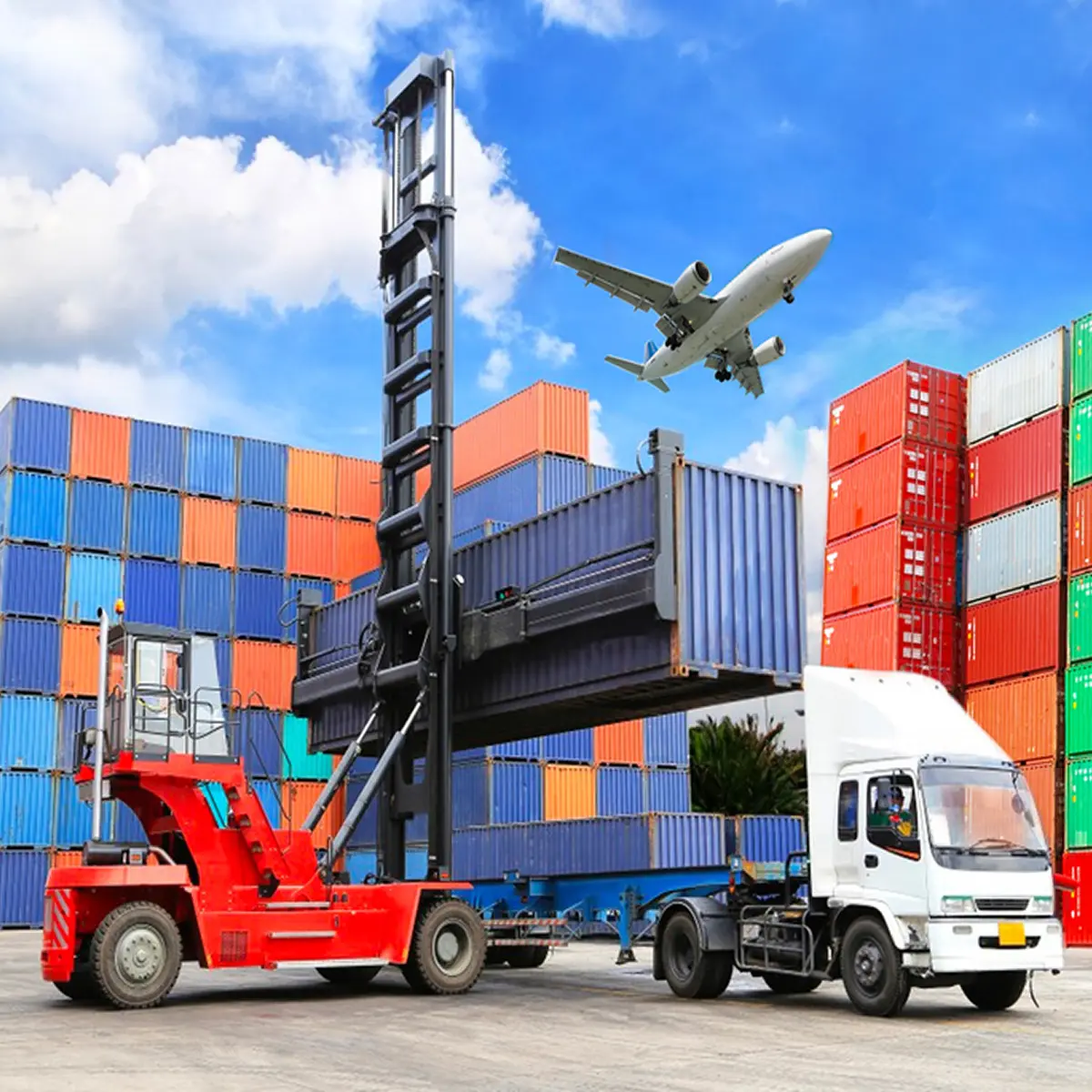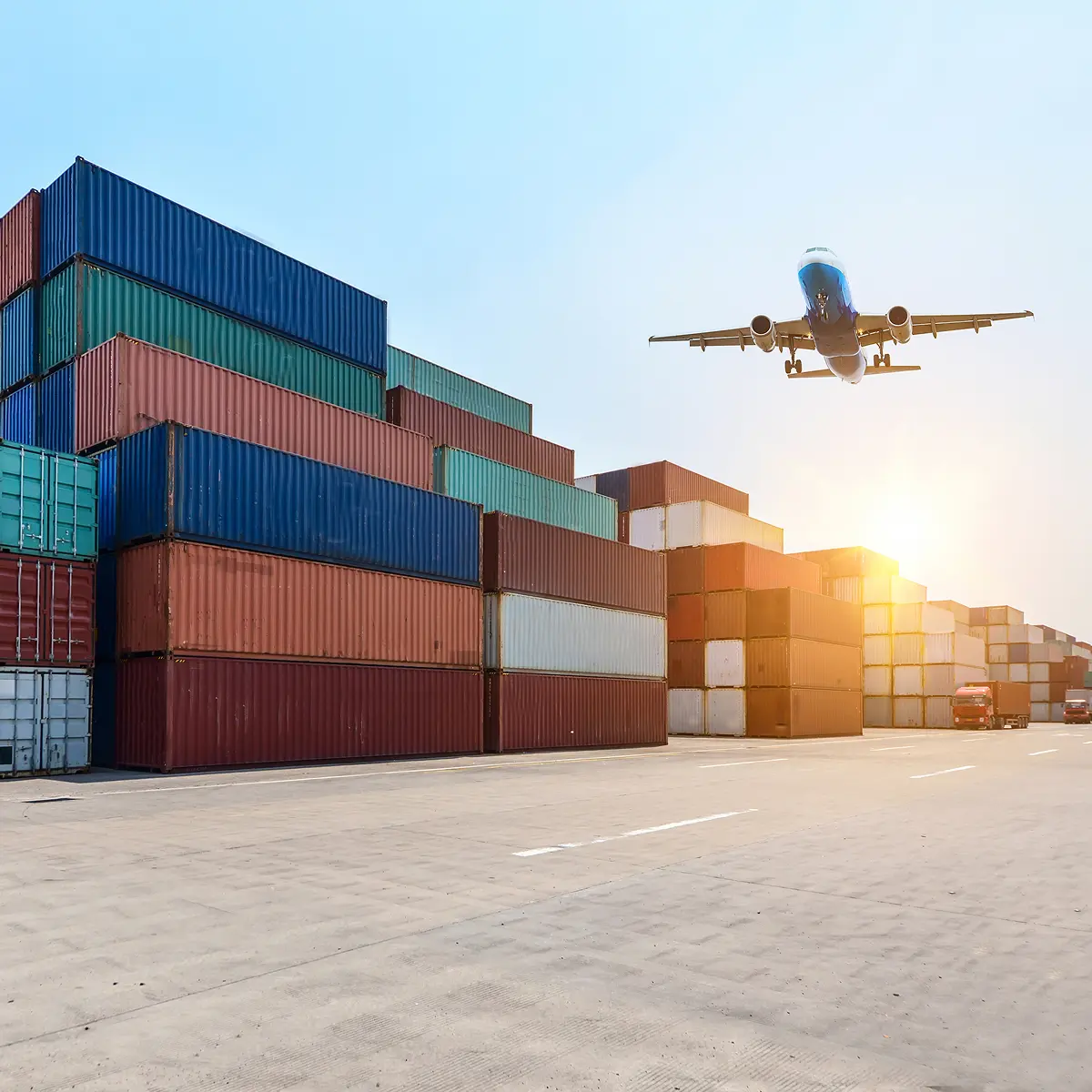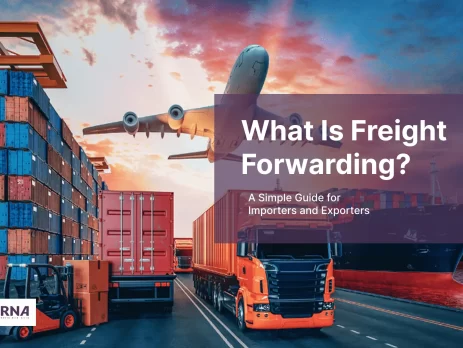International trade is complex — but it doesn’t have to be stressful. If you're an importer, exporter, or international trader, you've likely heard the term freight forwarding. But what exactly does it mean? And how can a freight forwarding company help your business move goods across borders more efficiently?
In this article, we'll break down the basics of freight forwarding and logistics services, how the process works, and why working with a reliable forwarder can give you a competitive edge in global trade.
 Freight forwarding is the process of planning, coordinating and overseeing the shipment of goods from one place to another using multiple carriers — by land, sea, air, or rail. A freight forwarder acts as an expert intermediary or channel between the shipper and the transportation services, ensuring that your cargo moves smoothly, efficiently and in compliance with local and international regulations.
They do not usually own the transportation assets themselves, but they organize the entire process — from point A to point B — ensuring that the goods are shipped efficiently, securely, and in compliance with local regulations.
Freight forwarding is the process of planning, coordinating and overseeing the shipment of goods from one place to another using multiple carriers — by land, sea, air, or rail. A freight forwarder acts as an expert intermediary or channel between the shipper and the transportation services, ensuring that your cargo moves smoothly, efficiently and in compliance with local and international regulations.
They do not usually own the transportation assets themselves, but they organize the entire process — from point A to point B — ensuring that the goods are shipped efficiently, securely, and in compliance with local regulations.

 When selecting a freight forwarder, keep these key points in mind:
When selecting a freight forwarder, keep these key points in mind:
What Is Freight Forwarding?
 Freight forwarding is the process of planning, coordinating and overseeing the shipment of goods from one place to another using multiple carriers — by land, sea, air, or rail. A freight forwarder acts as an expert intermediary or channel between the shipper and the transportation services, ensuring that your cargo moves smoothly, efficiently and in compliance with local and international regulations.
They do not usually own the transportation assets themselves, but they organize the entire process — from point A to point B — ensuring that the goods are shipped efficiently, securely, and in compliance with local regulations.
Freight forwarding is the process of planning, coordinating and overseeing the shipment of goods from one place to another using multiple carriers — by land, sea, air, or rail. A freight forwarder acts as an expert intermediary or channel between the shipper and the transportation services, ensuring that your cargo moves smoothly, efficiently and in compliance with local and international regulations.
They do not usually own the transportation assets themselves, but they organize the entire process — from point A to point B — ensuring that the goods are shipped efficiently, securely, and in compliance with local regulations.
What is an example of freight forwarding?
Let’s say an exporter in Iran needs to deliver machinery to a buyer in Kazakhstan. An international freight forwarding company arranges the road transportation to the port, handles customs clearance, books ocean freight, manages paperwork, tracks the cargo in transit, and ensures final delivery — all with clear reporting and minimal hassle for the customer.Is freight forwarding the same as a 3PL?
Not exactly. While both help manage supply chains, a 3PL (Third-Party Logistics Provider) usually offers broader services such as warehousing, distribution, or fulfillment. A freight forwarder focuses specifically on freight forwarding services, coordinating the best transport routes, modes, and customs solutions for international shipping.What Does a Freight Forwarder Do?
A professional international freight forwarding company does much more than just book transport. Its main job is to manage risk, save costs, ensure compliance, and deliver smooth shipping for businesses of all sizes. The freight forwarding company has key responsibilities:- Route planning and carrier negotiation to get the best rates and transit times.
- Customs clearance to handle paperwork and avoid delays or penalties.
- Cargo insurance to protect shipments in transit.
- Warehousing and distribution if needed.
- Real-time tracking and reporting to keep clients informed at every stage.
Step-by-Step: How Freight forwarding and logistics services Works
A professional freight forwarder takes the stress out of complex logistics by managing each step from origin to destination.- Export Haulage Transporting goods from the shipper to the forwarder’s warehouse or port.
- Export Customs Clearance Handling export documentation and compliance.
- Origin Handling Consolidating, packing and loading the cargo.
- Main Transportation Shipping by sea, air, land or rail, depending on route and budget.
- Import Customs Clearance Managing import duties and paperwork at the destination.
- Destination Handling Unloading, sorting, and preparing for final delivery.
- Import Haulage Moving goods to the final receiver or warehouse.
Types of freight forwarding
Choosing the right type of freight forwarding depends on your cargo, destination, budget, and timeline. A trusted international freight forwarding company will recommend the best mode — or combination of modes — to meet your needs.Sea Freight Forwarding
Sea freight is the most common and cost-effective solution for transporting large, heavy, or bulk shipments internationally. It includes Full Container Load (FCL) for exclusive use of a container, or Less than Container Load (LCL) when you share space with other shippers to reduce costs. Sea freight is ideal for non-urgent shipments with flexible delivery dates.Air Freight Forwarding
Air freight is the fastest option for long-distance shipping, often used for urgent or high-value cargo. It ensures quick delivery with strict security and tracking at every stage. Though more expensive than sea freight, air freight minimizes transit time and is ideal for perishable goods, electronics, or time-sensitive deliveries.Land Freight Forwarding
Land freight includes road and rail transportation. It is often used for regional or cross-border shipments, especially within connected markets like the CIS, the Gulf, or Asia. Land freight offers flexible options such as Full Truck Load (FTL), Less than Truckload (LTL), and specialized heavy haulage for oversized goods.Multimodal
Multimodal freight forwarding combines two or more transport modes — for example, sea and road or air and rail — under a single contract. It allows freight forwarders to design the most efficient, cost-effective routes by connecting different carriers seamlessly. This approach is perfect for complex routes that require crossing borders or reaching landlocked destinations.Benefits of Using a Freight Forwarding Company

- Save Time and Resources: Dealing with international regulations, paperwork, and logistics providers is complex. A forwarder handles all of it for you.
- Lower Shipping Costs: Experienced forwarders negotiate better rates due to their volume and long-term relationships with carriers.
- Customs Compliance: Avoid costly delays and fines by letting experts manage your customs processes accurately.
- End-to-End Visibility: Professional freight forwarders offer tracking, updates, and clear communication at every stage.
- Access to Global Expertise: Experienced forwarders understand international shipping rules for each country. This reduces risks and keeps your cargo moving smoothly across borders.
- Risk Management and Problem-Solving: Unexpected issues like port strikes, weather disruptions, or customs inspections can cause delays. A good freight forwarder handles these challenges for you.
Freight Forwarding vs. Shipping Company: What’s the Difference?
A shipping company owns the transport (like ships or trucks), while a freight forwarder manages the process using various carriers. The forwarder finds the best route, price, and service — often combining multiple shipping modes for one shipment. Think of it this way:- A shipping line gives you the vessel.
- A freight forwarder gives you the solution.
How to Choose a Freight Forwarder
 When selecting a freight forwarder, keep these key points in mind:
When selecting a freight forwarder, keep these key points in mind:
- Check Their Experience Make sure they have proven experience with your specific trade routes and type of cargo.
- Verify Certifications Look for valid certifications like FIATA or IRU membership to ensure credibility.
- Ask About Their Network A reliable forwarder should have strong partnerships with trusted carriers and local agents.
- Expect Transparency They should provide clear, detailed pricing and explain all costs upfront.
- Assess Communication Good freight forwarders keep you updated with shipment tracking and quick responses.
- Request References Ask for case studies or client references to see their track record.
- Look for Tailored Solutions They should offer flexible options that match your timeline and budget — not a one-size-fits-all approach.
Why Work With Rasta Nik Asia?
At Rastanik Asia, we’re more than a freight forwarding company — we’re your logistics partner for hassle-free trade across the CIS, Gulf and Asia. With over 13 years of experience, certified processes, clear reporting and a commitment to quality, we help importers and exporters grow with confidence. Whether you’re shipping goods by road haulage, sea freight, air freight or rail, we provide customized freight forwarding services designed to save you time, money and stress. What We offer:- Flexible freight options (air, land, sea, rail)
- Customs clearance support in complex borders
- Fast communication in English, Farsi, and Russian
- FIATA and IRU certifications
- Transparent reporting and shipment tracking

